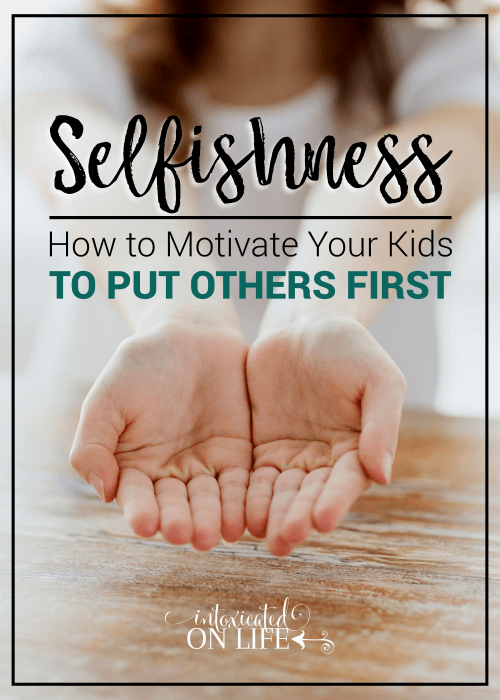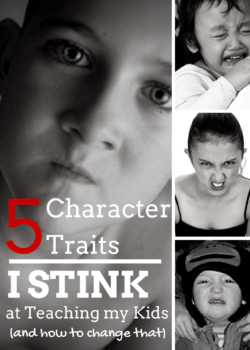Selflessness isn’t one of my children’s virtues. Come to think of it, it’s probably not mine either. I don’t know many children—or people, for that matter—who aren’t selfish. As sinners, we tend to be narcissistic.
But in His fatherly wisdom, God doesn’t just command us to put others first. He gives us biblical motives to do it.
He doesn’t just tell us that we should love and serve others. He tells us why we should.
As parents, it is important to not only teach our children what God expects of them, but show them biblical motives to live differently.
And when it comes to the subject of putting others first, Philippians 2:1-18 is one of the best passages to instill in the hearts of our kids.
Motivation #1: Christ is taking care of us
The first motivation Paul gives for us to put others first is that we have “encouragement in Christ” (2:1). What he means is we have consolation knowing we are united to Christ—we belong to Him and He is always with us.
How does this help our children to put others first?
Think about when you are being selfish, those times you’re so focused on what you want that you forget about what other people want. What if, instead, we were thinking about the comfort we feel knowing that Jesus is always with us, knowing that we belong to Him?
Selfishness is unnecessary because I should be encouraged knowing Christ is already taking care of me, so I am free to serve others.
Motivation #2: Loving like Christ
The second motivation Paul gives for us to put others first is that we have “comfort from love” (2:1), that is, from God’s love. God doesn’t just tell us, He shows us through his sacrifice on the cross. Paul says this news should be comforting.
How does this motivate our kids to put others first?
Think about the times you want to have your own way, or you mistreat others because you’re being selfish. What if, instead, you were thinking about how much God loves you? We would be inspired to show the same kind of love to others, despite how they sin against us.
Selfishness is ugly because it looks nothing like the person I want to become—a person who loves like God loves.
Motivation #3: Experience the unity of the Spirit
The third motivation Paul gives for us to put others first is that we all have fellowship or participation in God’s Spirit (2:1). The Holy Spirit lives inside us. The Spirit is the one convincing us that Jesus is the Son of God, and convicting us of our sins. Christians share in the same Spirit, binding us together.
How does this motivate our kids to put others first?
It’s easier to serve others when you can focus on the things you have in common. When we recognize that the Spirit is binding us together, we desire that unity. We desire to set aside our differences and selfish desires and love each other as family.
Selfishness is unsettling because it takes me away from the unity we should experience as God’s family.
Motivation #4: Bonds of affection
The fourth motivation Paul gives for us to put others first is our heartfelt “affection and sympathy” (2:1). Paul asks us to think back to any times when we’ve felt strong emotions of love for one another.
How does this this motivate our kids to put others first?
Sometimes it’s easy to forget the times we felt affection or sympathy for each other. We can feel deep love for someone one minute and an hour later they’re getting on our nerves. We want them to go away. At those times we need to remind ourselves of the affection we’ve shared with them.
Selfishness is unfriendly because it makes me forget about the affection and sympathy I really feel for others.
Motivation #5: Bring joy to our spiritual mentors
The fifth motivation Paul gives to the Philippians for putting others first is to “complete [his] joy” (2:2). He says if you want to make his joy overflow, then be united, be likeminded, and be humble. Paul reminds the Philippians of their love for him.
How does this motivate our kids to put others first?
Real humility and being servant-hearted brings joy to those who have taught us about Christ. When others who have taught us about Jesus see us choosing to not be selfish, it shows them the Gospel is at work in our hearts. Thinking of our love for those who taught us about Christ, motivates us to live out our faith.
Selfishness is unfulfilling because it does not bring joy to us or to those who have taught us the gospel.
Take the Lessons Further…
As parents, we should go deep with our children into the Scripture, showing them how the gospel doesn’t just rescue them from the guilt of their sin, but also the grip of their sin.
These are the first five motivations given in Philippians 2 to live a life of humility as service—just as Christ did.
- Selfishness is unnecessary because I should be comforted knowing that Christ is in me and God is taking care of me.
- Selfishness is ugly because it looks nothing like the person I want to become—a person who loves like God loves.
- Selfishness is unsettling because it takes me away from the unity we should experience as God’s family.
- Selfishness is unfriendly because it makes me forget about the affection and sympathy I really feel for others.
- Selfishness is unfulfilling because it does not bring joy to us or to those who have taught us the gospel.
You can learn more about this profound text in my husband’s family Bible study, The Heart of Humility: Teaching Your Kids to Put Others First. And you can spend a year helping your children write through this vital passage and hide it in their hearts by using our Write Through the Bible and Write Through the Bible, Junior series of books.
Use the Bible study and handwriting books together to memorize and take your kids deep into studying this passage of scripture.
Have you found ways to teach your children to be less selfish? How do you combat the selfishness that tends to creep into your own heart?












Sometimes we take such good care of ourselves that we don’t leave room for God to do anything! These are great points for teaching our kids to trust God with their lives.
You bring up some amazing points here! Thank you for sharing and giving some understanding to this passage!
God bless,
Patty
Wow! This is SO GOOD!!!
Thank you for this “meat” from God’s Word!
I started reading this when it was published but then thought of it again tonight when my 11 year old was talking about how angry some of the boys in class made her, even saying she wished they didn’t exist. I told her about Luke’s anger study I’d done and how as annoying as the boys are, and might be for a while, Jesus still loves and died for them. I’ve known of this study from Philippians but I’ll probably get it soon.
Let me know what you think of it.